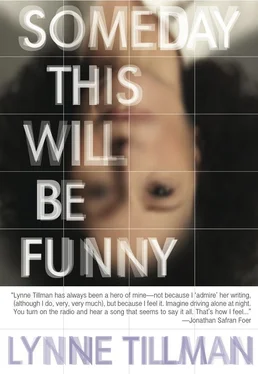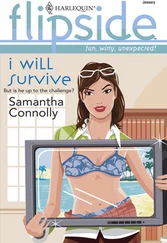At first calm, my friend explained that her nearsighted friend was leaving for the States that very day and wouldn’t even be bringing the new glasses into Greece. The customs official said that it didn’t matter and repeated that there was duty to pay and she had to pay it. My friend became agitated and also repeated the same thing: the contents were her friend’s personal property, which she wasn’t even bringing into Greece and she was leaving that day. Nothing had any effect upon the customs official. He continued to say money was owed, and it had to be paid. Then, my friend told me, she launched into Greek anger, that’s how she explained it, which naturally made me think about Greek tragedy.
My friend began cursing and shouting in Greek, a torrent of words. All the while the nearsighted friend listened but didn’t understand. My friend shouted and shouted and then, as she shouted, she surreptitiously opened the FedEx envelope, removed the eyeglass case, and took the glasses from it. Then still shouting vehemently in Greek, she returned the case to the envelope, closed it, threw the envelope on the table in front of the customs official, took her nearsighted friend by the hand, and stormed out. When the two had gone through the door, my friend took the glasses from her pocket, gave them to her friend, explained what she’d done, and said, run.
After my friend told me the story, I reminded her how she began it, by saying it was the best thing she had ever done. Oh, she said, that’s awful if it’s true.
— Sadness, that’s normal, it goes with the territory, but becoming bitter, bitterness is to be avoided, he said.
— Be a saint instead, she said.
Instead, he’d live from the largesse of a common madness, not just his own, not just from his sadness, he’d lament and move on, lament and move on.
My lament, can’t do it, my way.
Clay wouldn’t ever want to relinquish internal rhyme, rhyming was a mnemonic device, too, and venerable for a reason, and, along with that, he relied on the beautiful histories meshed inside the roots of words.
— We don’t determine what words mean, they determine what we mean, Clay said, later. We don’t determine much.
Cornelia was a film editor and also translated documents and titles for a movie company, she also plied her insightful eye as a photo researcher and archivist for a wealthy eccentric, who never left his house and liked to know what was going on, but only in pictures. The eccentric hated to read.
— It would be great if pictures told a story, Cornelia said, but they don’t. They tell too many, or they don’t tell any.
— Words, also, he said.
— Images are easier to misread, she said.
— I don’t know.
Subtitles crowded the image, she explained more than once, they changed the picture, even dominated it, and besides, reading words on a screen disrupted the cinematic flow. He wasn’t sure that was all bad, but then he was suspicious of images, which he didn’t make. He
was wary of words, too, which he used and tried to remake, so he had reason for anxiety. In her business, they talked about “getting a read on” a script, on meaning, sort of instantaneously.
A place for words, orphaned, wayward, no words,
no images, what then.
The lovers argued about the small things, about cleaning up after themselves in their apartment, as responsible adults do, supposedly, and petty problems, at work and with relative strangers, and also the large things, love, politics, history, friendship, art, poetry, which he wrote, when inevitably inconsiderate matter that had earlier settled in words and sentences extruded layers of their pasts, lived together and separately.
Code, just for now, when you mean its opposite,
bright lust of sullen night.
He’d been stunned by an obituary: “To my dear friends and chums, It has been wonderful and at times it had been grand and for me, now, it has been enough.” The man — it was signed “Michael”—had had the presence of mind to write and place his own death notice, it resonated a unique thoughtfulness, sad and mad, was he a suicide? And, on TV, a Fuji commercial declaimed a new longing for the fast-escaping present: “Because life won’t stay still while you go home and get your camera.”
Writing death, perpetual, language like a
house, an asylum, an orphanage. In a dream I
wasn’t, argued with someone or myself, so lost.
Perpetual death of words, writing.
He wasn’t his dream’s hero, but there are no heroes, just cops. Clay stopped to watch two beat cops, surreptitiously he hoped, while they canvassed the street for errant civilians, ordinary or unusual, and the cops, they’re ordinary and they’re not, and out of uniform they’re nothing, or they’re nothing just like him, dumb mortals compelled by ignorant, invisible forces, which happened to be, in their case, part of the job. A police car sped by, like a siren, in time or too late to stop it, the robbery, murder, the robber, murderer. He asked the butcher for stew meat but studied another butcher at the bloodstained chopping block who expertly sliced off a layer of fat, thick and marbled, from a porterhouse. Fat enriches the meat’s taste, his mother taught him, and also she warned, it’s better to be dead and buried than frank and honest. She said she knew things he didn’t that she hoped he’d never know, it was the part of her past she wouldn’t tell him.
— At the end of the day, everyone wants someone to cook for them, a woman, who was probably waiting for the porterhouse, announced to a man by her side.
The man appeared to understand and nodded his head. Clay wondered if giving the appearance of understanding was actually understanding, in some sense, and if duplicity of this sort was necessary for a society’s existence, maybe even at its basis or center, and not the ancient totem Émile Durkheim theorized. People regularly don’t understand each other, but if that were constantly apparent, rather than gestures of tacit agreement and recognition, a stasis, punctuated by violent acts everywhere, would stall everyone for eternity.
“Security has now been doubled at the stadium, but people’s enjoyment won’t be hampered, officials say.” The radio announcer’s voice sounded out of place in the warm, yeasty bakery, where he now was, doing errands like a responsible mate. The baker tuned the radio to a station that gave bulletins every few minutes, which some people listened to all day long, so they knew the news word by word, and Clay imagined they could recite it like a poem.
An epic, way to remember. A gesture, song, war,
a homecoming. Fighting writing my death,
persistent oxymoron. Perpetrator. Victim.
Terror to fight terror. Fire or an argument with
fire. Firefight. Spitfire. Lawless, Eliot Ness,
childhood. Fighting against or for terror, lies
in mouth. Can’t leave home without it. Get a
horse instead.
People expected the unexpected, unnatural and natural disasters, a jet crashing in the ocean, all lost, hurricanes beating down towns, all lost, bombs doing their dirty work, lives lost and shattered, houses destroyed, and attentive listeners needed to know, instantly, for a sense of control or protection, and for the inevitable shock of recognition: I’m still alive.
The baker’s son Joey, dressed in white like a surgeon, the skin on his florid cheeks dusted with flour, asked him what he wanted, then bantered with him as he always did.
— Sun, Clay, ever see it? You’re pasty-faced.
— You’re flour-faced. I want a sourdough loaf, and the recipe.
— Forget about it, Joey the baker’s son said. Family secret for five generations.
— I’ll get it.
— You’re just like your mother, Joey said.
Читать дальше












